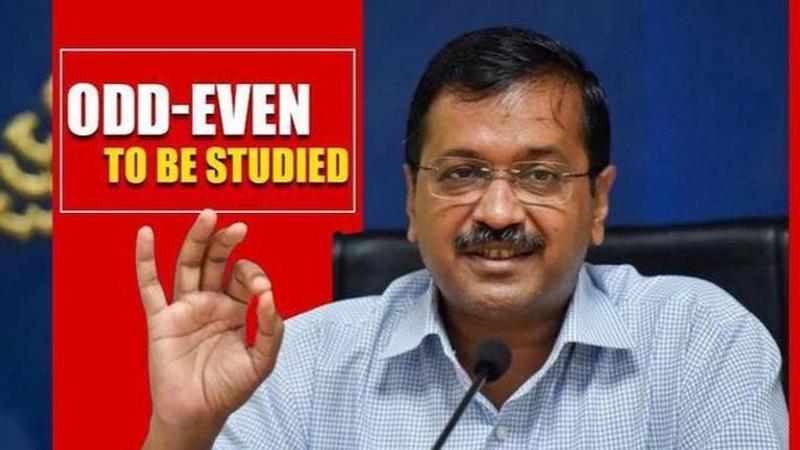Published 06:43 IST, September 23rd 2019
IIT-Delhi team to study the impact of Odd-Even rule in New Delhi
A six-member team from IIT-Delhi will be monitoring the impact of the Odd-Even rule in New Delhi. The CM announced that the rule will return from November 4-15

A team of students from IIT-Delhi will study the impact of the Odd-Even scheme which will be enforced in New Delhi for the third time in November. Earlier in September, Delhi Chief Minister Arvind Kejriwal said that the 'Odd-Even' rule will be enforced in New Delhi between November 4-15.
Method of gauging the impact
The Odd-Even rule implies that cars that have number plates which end with an odd number will be allowed to be on the roads only on odd days of the month, and subsequently, cars which end with an even number will be allowed to be on the roads only on even days of the month.
A six-member team will monitor the pollution levels in the National Capital from October 15-November 15. The team has invented a device called "Eziomotiv" and initially received funding from the institute's Centre of Excellence for Research on Clean Air. Pooja Singh, a member of the incubation unit at the institute said, "The devices will be placed atop around 250 buses to gauge air quality. They will help calculate particulate matter (PM), heat, temperature and humidity across different terrains, traffic movement, weather and times of the day. We have tied up with Delhi Integrated Multi-Modal Transit System (DIMTS) for the purpose. Each bus makes 16 trips daily, covering different routes with each of them being around 30 to 40 km long. The devices have a camera and are GPS enabled so we can also track the vehicle’s movements".
She mentioned that in order to gauge the actual impact of the scheme, levels from prior the implementation and during the implementation will have to be studied. She said, "To analyze whether the scheme was impactful or not we also need data of preceding days to compare with. Hence, it will be done in two phases and we will analyze whether the quality improved or not during odd-even and if yes by how much percentage”.
Steps to decrease pollution
The implementation of the Odd-Even rule is one of the steps taken by the Delhi government to decrease the pollution levels and help citizens deal with pollution in the winter months. The CM also announced that the odd-even rule will help to decrease pollution levels by 10-13%. Kejriwal also announced that the government was procuring N-95 masks which will be made available to the public for free from October so that the citizens are ready when pollution levels increase in the city. The National Capital is known to face extremely hazardous pollution levels during winter months, with the main reason for the pollution being the burning of crops from the outskirts of the city and neighbouring regions.
Updated 11:00 IST, September 23rd 2019




